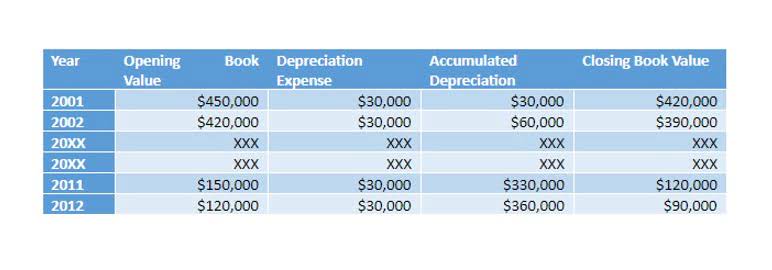
It is a foundational accounting process, and developing strategies to improve core areas of your business would be nearly impossible without it. Yet as important as bookkeeping is, implementing the wrong system for your company can cause challenges. Some companies can still use manual methods with physical diaries and paper journals.
Let’s Talk: The art of effective cash flow management — Dynamic Business — International Site
Let’s Talk: The art of effective cash flow management.
Posted: Tue, 10 Oct 2023 20:54:27 GMT [source]
The year-end reports prepared by the accountant have to adhere to the standards established by the Financial Accounting Standards Board (FASB). Now that you’ve balanced your books, you need to take a closer look at what those books mean. Summarizing the flow of money in each account creates a picture of your company’s financial health. You can then use that picture to make decisions about your business’s future. Bookkeeping is the process of recording your business’s financial transactions so that you know exactly how much you’re making and where your money is going. As a business owner, it is important to understand your company’s financial health.
The FIFO Accounting Method
If a general ledger is like a book, a chart of accounts is like a book’s table of contents—it’s a list of all the accounts your business uses to record transactions. In this metaphor, each account is like a chapter of a book, and individual journal entries are kind of like the pages of each chapter. Your general ledger is organized into different accounts in which you record different types of transactions. Bear in mind that, in the world of bookkeeping, an account doesn’t refer to an individual bank account. Instead, an account is a record of all financial transactions of a certain type.

At the end of every pay period, the bookkeeper will accumulate employee payroll details that include hours worked and rates. From there, the total pay is determined with the applicable taxes and withholdings. In the https://www.bookstime.com/ accounting software, the primary journal entry for total payroll is a debit to the compensation account and credits cash. Bookkeeping is the process of tracking and recording a business’s financial transactions.
The LIFO Accounting Method
You likely won’t have the same exact accounts as the business next door—that’s one key reason we recommend meeting with a CPA to set up an individualized chart of accounts specific to your business. But regardless of the type or size of business you own, the accounts we list below are the most popular. Alternatively, you can pay an accountant, bookkeeper, or outsourced accounting company to manage your accounts and ledger for you. Every time you perform a financial transaction—for instance, make a sale, accept a client’s invoice, or pay a bill—you should record that transaction in your general ledger. Recording a financial transaction in your general ledger is referred to as making a journal entry. Even if you aren’t planning on growing any time soon, you need to have a sense of how much money is coming in versus what is going out.
Ask for testimonials from people who have utilized your services in the past and spread the word about your offerings through a website or social media. This content is for information purposes only and should not be considered legal, accounting, or tax advice, or a substitute for obtaining such advice specific to your business. No assurance is given that the information is comprehensive in its coverage or that it is suitable in dealing with a customer’s particular situation. Intuit Inc. does not have any responsibility for updating or revising any information presented herein. Accordingly, the information provided should not be relied upon as a substitute for independent research. Intuit Inc. does not warrant that the material contained herein will continue to be accurate nor that it is completely free of errors when published.
Better tax preparation
There are dozens and dozens of bookkeeping options available and the choices may seem overwhelming. We’ve analyzed and rated the best online bookkeeping services to help you make the best decision when choosing the right one. Outsourcing your bookkeeping is another option, and this guide on how to find the best virtual bookkeeping service can help you get the process started. Small businesses often work with tax advisors to help prepare their tax returns, file them and make sure they’re taking advantage of small-business tax deductions. Though you may not work regularly with a tax specialist year-round, you’ll want to connect with one sooner rather than later so you’re not rushed come tax time.
Bookkeeping is one of the most important tasks that a business owner will delegate over the life of a business. Without it, it’s nearly impossible to produce an accurate record of financial activities that affect everything, from profit to equity to payroll, and more. Never leave the practice of bookkeeping (or your business assets) to chance. No matter what system you implement, incorporate a practice of reconciliations, by comparing the numbers in your system to the source records, like bank statements, receipts, and invoices.
The most common small-business accounts
Since the information gathered in bookkeeping is used by accountants and business owners, it is the basis of all the financial statements generated. Most accounting software allows you to automatically run common financial statements such as an income and expense statement, balance sheet and cash flow statement. Business owners or accountants can then use these statements to gain insight into the business’s financial health. Bookkeeping is the regular practice of updating a company’s financial records to reflect all financial transactions, credits, and debits.
Make sure to tackle your books when your mind is fresh and engaged—say, at the start of the day before you open your doors rather than late at night, after you’ve closed up shop. You want to be at your best when you’re looking at figures that explain your business’s profitability and help you chart a course for progress. Most accounting software will bookkeeping methods automatically import your bank data so you don’t have to manually enter and organize each transaction. If you’re using spreadsheet software as your GL, you’ll need to enter each transaction by hand. If you’re searching for accounting software that’s user-friendly, full of smart features, and scales with your business, Quickbooks is a great option.
When manually doing the bookkeeping, debits are found on the left side of the ledger, and credits are found on the right side. Debits and credits should always equal each other so that the books are in balance. Before you begin bookkeeping, your business must decide what method you are going to follow. When choosing, consider the volume of daily transactions your business has and the amount of revenue you earn.
- Once you gather these documents, you can record the transactions using journals, ledgers, and the trial balance.
- A program like QuickBooks cloud accounting software, for example, can help you track income and expenses much faster than you could with a traditional ledger.
- An accounting method refers to the rules a company follows in reporting revenues and expenses.
- Accounts Payable is an expense account that lets you know how much money you owe to your creditors.
In layman’s term, it is the process in which the transactions, both income and expenses, of a business is recorded in the books of the company. By now you should have a pretty good idea of the ins and outs of small-business bookkeeping. Canada is home to plenty of experienced, knowledgeable accountants and bookkeepers who can assist you in developing a system for financial record keeping. One good place to start your search for a bookkeeper is through Quickbooks. A ProAdvisor can assist you with small-business bookkeeping and installing or learning how to use cloud accounting software.
What are the Different Methods of Bookkeeping?
Though often confused for each other, there are key differences between bookkeeping and accounting. At its core, bookkeeping is about recording financial data, while accounting is about interpreting financial data. Accrual accounting is based on the matching principle, which is intended to match the timing of revenue and expense recognition. By matching revenues with expenses, the accrual method gives a more accurate picture of a company’s true financial condition.
- It doesn’t track the value of your business’s assets and liabilities as well as double-entry accounting does, though.
- Whether you outsource the work to a professional bookkeeper or do it yourself, you’ll be able to reap a variety of benefits.
- Very small businesses may choose a simple bookkeeping system that records each financial transaction in much the same manner as a checkbook.
- These expenses that haven’t been paid yet are categorized as accounts payable.
- Proper financial records make it easier for you to analyze the financial state of your firm and determine areas that need improvement.
- Wondering how best to collect and track financial information, deal with expense management, and ensure healthy cash flow for your business?